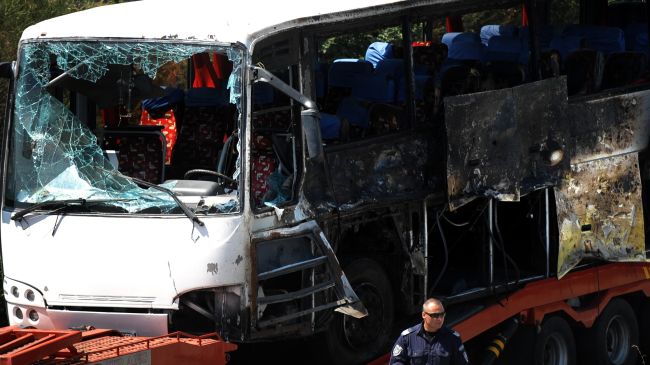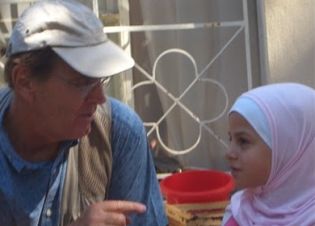From this observers experience in Lebanon there is only one cosmic like event that is nearly as predicable from Ramlet al Baida beach in Beirut...
Beirut
From this observers experience in Lebanon there is only one cosmic like event that is nearly as predicable from Ramlet al Baida beach in Beirut, near Shatila Palestinian refugee camp, than the sun coming up like thunder out of Syria across the eastern Bekaa Valley every morning. And that might be the regularity of the on cue from Washington, Riyadh, Doha, and Tel Aviv cacophonous chorus that very frequently these days wafts throughout this country and region: “Hezbollah must give up their weapons!”
As this country begins focused preparation for next year’s parliamentary elections which is predicted by some analyst’s to quickly develop into the most expensive in Lebanese history in terms of dollars per vote contracted for by some well financed parties, the Future Movement-led March 14 coalition and their international backers are out of the gates early and currently stressing “the urgent need to disarm Hezbollah in order to deprive Israel of a pretext to attack Lebanon.” With convincingly sincerity, their leaders intone:
“The Israelis are planning to justify aggression against Lebanon, and given Israeli attempts to hold Hezbollah and Iran responsible for the Bulgaria attack at the Black Sea airport of Burgas in which five Israelis and their Bulgarian driver were killed Hezbollah disarmament is essential,” the press releases from the Mustaqtbal headquarters warn.
These are followed by warnings about Israeli accusations that Hezbollah will likely receive chemical weapons from the Syrian regime that is trying to smuggle them into Lebanon as stated in a just issued statement issued at the end of the March 14th coalition’s weekly meeting.
With respect to the Bulgaria attack, the European Union turned down a request on 7/24/12 by Israeli Foreign Minister Avigdor Lieberman to blacklist Hezbollah as a terror group following the bombing in Bulgaria. Israel blames Iran and Hezbollah for Wednesday's suicide attack at the Black Sea airport of Burgas in which five Israelis and their Bulgarian driver died.
"There is no consensus or justification for putting Hezbollah on the list of terrorist organizations," said Cypriot Foreign Minister Erato Kozakou-Marcoullis, whose country currently holds the rotating EU presidency. Sitting alongside the Cypriot minister at a news conference held after annual EU-Israel talks, Lieberman said: "The time has come to put Hezbollah on the terrorist list of Europe."
"But it would give the right signal to the Israeli people”, Lieberman counter-argued during his continuing 10 European country anti-Iran and Hezbollah tour funded unknowingly by American taxpayers.
 But to Lieberman’s consternation, Kozakou-Marcoullis patiently explained the EU decision that Hezbollah was an organization comprising a party and was "active in Lebanese politics...Taking into account this and other aspects there is no justification for putting Hezbollah on the list of terrorist organizations," she said.
But to Lieberman’s consternation, Kozakou-Marcoullis patiently explained the EU decision that Hezbollah was an organization comprising a party and was "active in Lebanese politics...Taking into account this and other aspects there is no justification for putting Hezbollah on the list of terrorist organizations," she said.
Oddly, as though in sync with Lieberman’s timing, the March 14th coalition statement called on the international community to “protect Lebanon from any Israeli attack,” it stressed the need for Hezbollah's disarmament, arguably the only deterrent that has and will continue to give Israel pause before its likely 6th major aggression against Lebanon, “in order to deprive Israel of the pretext it is using to justify its aggression.”
In its weekly communiqué , the Future Movement continued its silence of how to address Lebanon’s urgent problems which include some of the subjects recently enumerated by Human Rights Watch investigator in Lebanon, Nadim Khoury when he pointed out this month that:
“Lebanon has to realize that it is actually falling behind on so many important measures that need urgent attention and they include women’s rights, protection of vulnerable groups, lack of protection for the elderly, the right to education, increasing inequality, lack of urban planning – you name it.” And the elementary civil right to work and to own a home for Palestinian refugees.
There may well be several states on Earth in worse shape than Lebanon, to paraphrase British journalist Patrick Galey, but the lack of security, crumbling infrastructure, stagnating legislation, wobbling economy, spreading protests and regressing human rights, Lebanese citizens could be forgiven for understanding the need for Hezbollah’s weapons of effective deterrence against Israel given the latter’s history of aggressions against Lebanon.
Some in Lebanon has discussed the similarities between the Hezbollah led Resistance movement based in Lebanon and the New England based American Resistance to British occupation two and one half centuries ago. Included have been forums that examine the similarities between the events at Karbala and in this region and the martyrdom operations of American patriots in 18th century colonial America.
With respect to politically motivated calls for Hezbollah to disarm, one hears some of the very same responses to the suggestions coming from the American Founding Fathers as they crafted a new resistance “open letter” or Constitution which in point of fact are reported to have influenced Hezbollah’s 1985 and 2009 manifestos as did the American Declaration of Independence to some degree.
As though they understood very well the problems facing the Hezbollah led Resistance and would be foreign occupiers, the American framers argued, not as many National Rifle Association lobbyists do that a gun is the right of every citizen for his personal use, but rather that the Resistance needs deterrent weapons to prevent another occupation:
"I ask, Sir, what is the militia? It is the whole people. To disarm the people is the best and most effectual way to enslave them." George Mason Co-author of the Second Amendment during Virginia's Convention to Ratify the Constitution, 1788
"A militia, when properly formed, are in fact the people themselves …"
Richard Henry Lee writing in Letters from the Federal Farmer to the Republic, Letter XVIII, May, 1788.
As passed by the new American Resistance Congress the members framed the 2nd Amendment to the US Constitution as follows:
A well-regulated Militia, being necessary to the security of a free State, the right of the people to keep and bear Arms, shall not be infringed.
The concept that the state should have a monopoly on all arms within a country has long been foreign to Lebanon. Since the end of the Civil War, non-state militias have maintained and even bolstered weapons stocks, stashed in caches around the country. Once Lebanon becomes a real nation state and can defend its people against the serial aggressor to its South, no doubt a mechanism for centralizing the deterrent capacity of Lebanon will likely soon follow.
 |
Franklin Lamb, former Assistant Counsel, US House Judiciary Committee and Professor of International Law at Northwestern College of Law in Oregon, earned his Law Degree at Boston University and his LLM, M.Phil., and PhD degrees at the London School of Economics. Following three years at the International Court of Justice in The Hague, Lamb was visiting fellow at the Harvard Law School’s East Asian Legal Studies Center. He is currently doing research in Lebanon and volunteers with the Palestine Civil Rights Campaign and the Sabra-Shatila Foundation. Lamb is the author of: Israel’s 1982 War in Lebanon: Eyewitness Chronicles of the Invasion and Occupation, South End Press, First Printing, 1983, International Legal Responsibility for the Sabra-Shatila Massacre, Imp. TIPE: 42, Rue Lebour 93100 Montreuil, Paris, France 1984, The Price We Pay: A Quarter Century of Israel’s Use of American Weapons in Lebanon (Lamont Press) 2007, His latest book, The Case for Palestinian Civil Rights in Lebanon, is due out shortly. |
